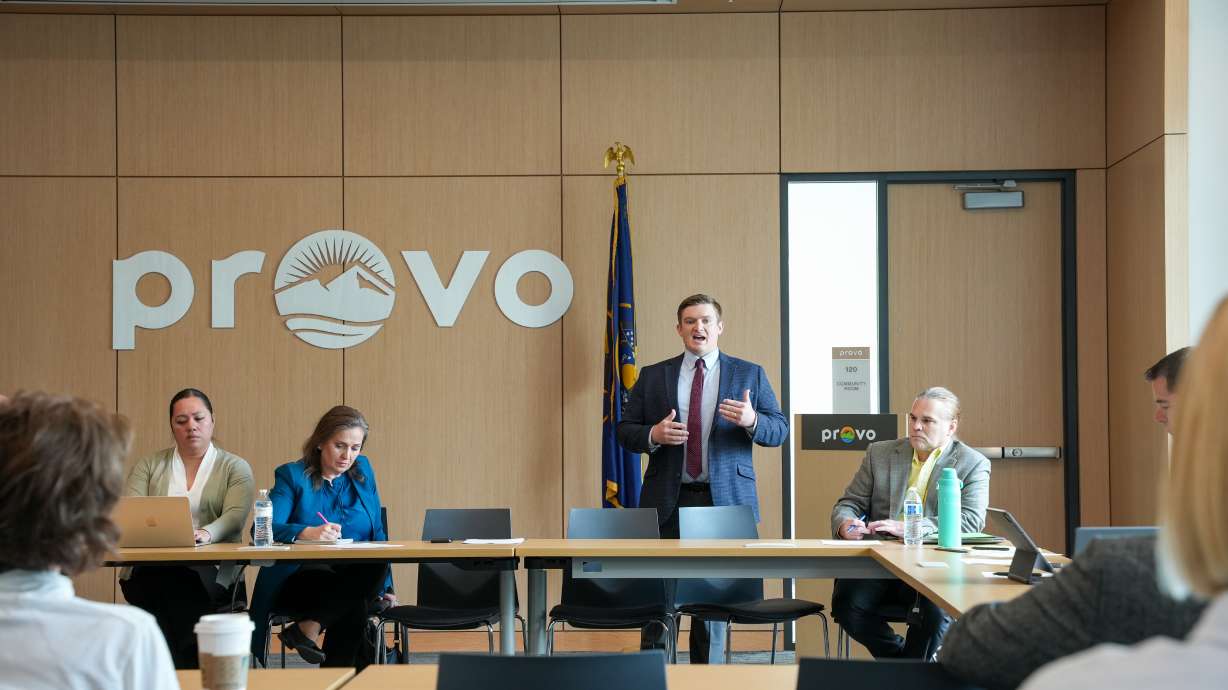Estimated read time: 3-4 minutes
- Utah State Rep. Tyler Clancy lead the first meeting of a newly organized violence prevention group in Provo.
- The group will study successful programs like Boston's Operation Ceasefire to find effective ways to reduce crime.
- Diverse voices discussed prevention, mentoring and awareness to address Utah's violence issues on Friday.
PROVO — Utah State Rep. Tyler Clancy is leading an effort to unite voices from health care, education, criminal justice and numerous other organizations to discuss violence in Utah and find ways to reduce violent crime.
On Friday, the Pleasant Grove Republican led the first official meeting of the Informal Working Group for Violence Prevention in Utah. "We want to stop violent crime and reduce it as much as possible. ... We are going to study how this has been done in similar places and keep working on it," Clancy said.
The group plans to study other states, cities and organizations that have demonstrated success in reducing crime levels.
One of the most influential examples they will study is Boston's Operation Ceasefire. Implemented in the city from 1996 to 2000, the program's focus on gun violence ultimately led to a 63% reduction in youth homicides in the city, according to the National League of Cities. Clancy's group credits Operation Ceasefire as "one of the most effective focused deterrence strategies ever implemented."
The meeting at Provo City Hall on Friday provided an opportunity for the group to discuss Utah's problems with violence and for different voices to be heard. Part of Clancy's vision includes bringing together unique voices from "left, right and center" of the political spectrum, he said. Disagreements are welcomed and discussed throughout meetings.
"Denial is one of the biggest barriers when it comes to preventing youth violence and gang threats," said Koki Cline, a representative from Alpine School District who attended Friday's meeting.
Many agreed that awareness in Utah can be limited. They believe the general public may be unaware of many of the drug, gun and violence-related issues surrounding the community. To combat the issues, members of the group suggested mentoring programs to help youth connect with the community.
"Mentoring is the piece that we are missing. … That is where I feel like we are struggling in our community. If we are going to ask kids not to get into decisions that get them in trouble, we have to replace that mentoring piece," said Panela Vickrey, of Juvenile Defender Attorneys.
Above all, the council emphasized the need for connection and prevention in the state. They mentioned that if they can stop the problems before they arise, the incarceration cycle will be less vicious.
"If we empower them … and teach them that they can make their own choices, I think we will start to see more of an outcome," Rep. Melissa Ballard, R-North Salt Lake, shared.
"As much perspective as one person has, you don't have every piece. … All these people coming together is one piece of the puzzle. Until we can truly know what the issues are and what the perspectives are, we won't solve this problem," said Utah Rep. Verona Mauga, D-Salt Lake City. "I feel hopeful sitting in this room with so many people from different organizations and groups. ... We all want the same thing."
The diverse group of voices is a key component of the group, and they hope to have more grassroots organizations represented at their meetings. Additionally, Clancy plans to take lessons learned from the group and potentially implement them in the Utah Legislature.
"This is about more than enforcement; it's about prevention, accountability and restoring safety and opportunity for the next generation," he said.
The group will hold another meeting later this summer, which the public is welcome to attend. Questions can be directed to clancy4utah@gmail.com.









